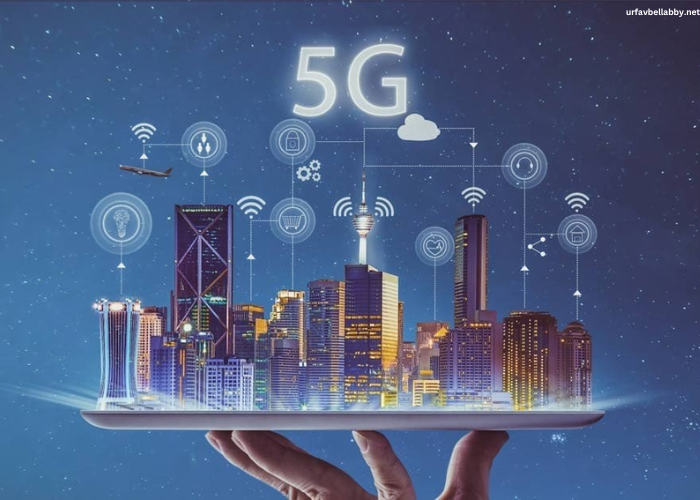The fifth generation of mobile networks, or 5G, is rapidly transforming how businesses operate and how consumers interact with technology. As the world prepares for this new era of connectivity, the potential impacts of 5G are far-reaching, promising faster speeds, lower latency, and the capacity to connect more devices than ever before. In this article, we will explore what 5G means for both businesses and consumers, highlighting its benefits, challenges, and future prospects.
What is 5G?
5G is the latest iteration of mobile network technology, following 4G, 3G, and 2G. It represents a massive leap forward in terms of speed, efficiency, and connectivity. With theoretical speeds up to 100 times faster than 4G, 5G promises to deliver download speeds of up to 10 gigabits per second (Gbps), making it ideal for everything from streaming ultra-high-definition content to supporting the increasing demand for IoT (Internet of Things) devices.
Unlike previous generations, 5G operates on a broader range of frequencies, including millimeter-wave bands, which allows for greater data transfer capacity and lower latency. This means that 5G networks will be able to handle the massive volume of data generated by modern technologies such as autonomous vehicles, smart cities, and industrial automation.
Benefits of 5G for Businesses
1. Enhanced Productivity and Efficiency
5G’s increased speed and lower latency will enable businesses to process more data faster. Industries such as healthcare, finance, and logistics will benefit from the ability to make real-time decisions based on instant data transmission. For example, in healthcare, 5G-powered devices will allow for the remote monitoring of patients in real time, leading to faster response times and more personalized care.
2. Enabling Innovation in the IoT
The Internet of Things (IoT) refers to the growing network of connected devices, from smart thermostats to industrial robots. 5G’s ability to connect a vast number of devices simultaneously, with reduced interference and faster data processing, will be a game-changer for businesses in industries like manufacturing, agriculture, and retail. Sensors and connected devices will become more reliable, allowing businesses to gather more actionable data and automate processes more efficiently.
3. Improved Customer Experience
With faster and more reliable connections, businesses can provide enhanced customer experiences. For example, retailers could offer augmented reality (AR) and virtual reality (VR) experiences that are more seamless and immersive. Customer support could be transformed with 5G-powered real-time video consultations, improving the quality of service and customer satisfaction.
4. New Business Models
5G could create new business opportunities and revenue streams. The development of new services and applications in fields like autonomous vehicles, smart homes, and augmented reality will allow businesses to diversify their offerings. For example, telecommunications companies may look to sell access to their 5G infrastructure for private, dedicated networks tailored to businesses’ specific needs.
Benefits of 5G for Consumers
1. Faster Speeds and Better Connectivity
Consumers will experience vastly improved mobile internet speeds, enabling faster downloads, smoother streaming, and quicker web browsing. Gaming, video conferencing, and content consumption will be enhanced as the high-speed capabilities of 5G allow for ultra-high-definition videos, low-latency interactions, and seamless experiences across devices.
2. Empowering the Smart Home
5G will make smart homes more efficient by supporting a greater number of connected devices without sacrificing performance. Consumers can expect smarter and more responsive devices, from voice assistants to security cameras. With the added reliability and speed of 5G, home automation systems will become faster, more integrated, and more intuitive.
3. Immersive Media Experiences
With 5G, consumers can expect richer media experiences, including augmented and virtual reality. 5G will enable the streaming of AR and VR content without the latency issues that have plagued these technologies in the past. Whether it’s immersive gaming, virtual shopping, or real-time video experiences, 5G will bring an entirely new level of engagement to consumers.
4. Better Connectivity in Rural Areas
5G has the potential to bridge the digital divide by providing better connectivity in rural and underserved areas. With its ability to connect more devices and offer greater speed, 5G could bring high-quality internet access to regions where traditional broadband infrastructure has been difficult to deploy. This could lead to improved access to education, healthcare, and economic opportunities.
Challenges and Considerations
Despite the many benefits, the rollout of 5G also presents several challenges for both businesses and consumers.
- Infrastructure and Cost Building the infrastructure necessary to support 5G networks requires significant investment. The need for more base stations, fiber optic cables, and millimeter-wave spectrum to provide coverage can be costly and time-consuming. While urban areas may see rapid deployment, rural regions may face delays in 5G availability.
- Security Concerns As more devices become interconnected through 5G, security concerns will rise. Businesses must be prepared for the potential risks of cyberattacks and data breaches, especially as they adopt new technologies like autonomous vehicles and IoT devices. Ensuring secure 5G networks and devices will be critical.
- Privacy Issues The increased amount of data generated by 5G-enabled devices raises privacy concerns. With more data being collected and processed in real-time, consumers and businesses alike will need to be vigilant about how personal data is used and protected.
- Device Compatibility To fully take advantage of 5G, consumers and businesses will need 5G-compatible devices. The transition from 4G to 5G may require upgrades to existing smartphones, IoT devices, and infrastructure, leading to additional costs for early adopters.
The Future of 5G
As 5G continues to roll out globally, its potential to transform industries and improve consumer experiences is immense. The rise of 5G will likely lead to the development of entirely new technologies and business models, particularly in fields like artificial intelligence, autonomous driving, and healthcare.
For businesses, 5G opens doors to greater innovation, efficiency, and new revenue streams, while consumers stand to benefit from faster, more reliable connectivity and immersive media experiences. However, the full realization of 5G’s potential will require overcoming challenges related to infrastructure, security, and device compatibility.
Conclusion
As the world embraces 5G, both businesses and consumers will need to stay informed and adaptable to leverage the opportunities and address the challenges that come with this next generation of mobile connectivity.





